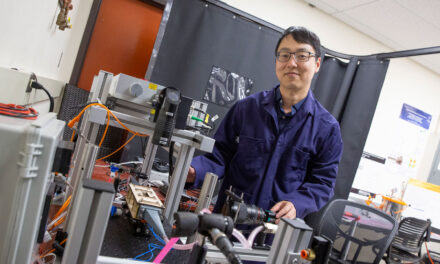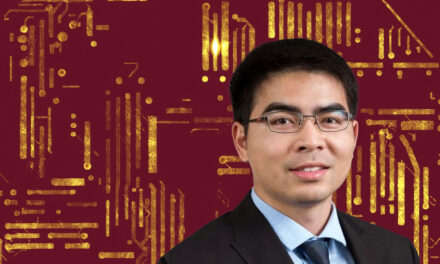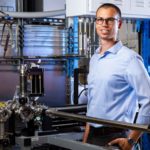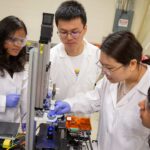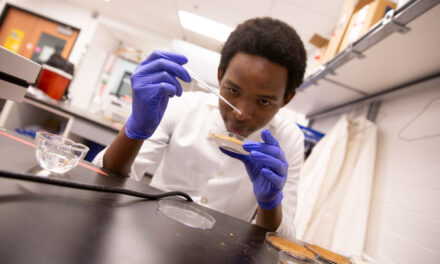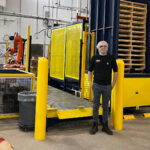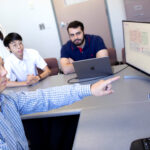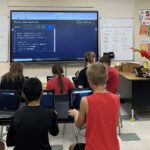
Pentagon names ASU Prof Ying-Cheng Lai NSSEF Fellow
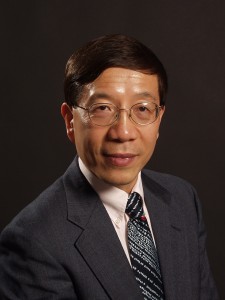
ASU Electrical Engineering Professor Ying-Cheng Lai has been named to a prestigious Department of Defense fellowship.
Arizona State University Professor Ying-Cheng Lai has been named a 2016 National Security Science and Engineering Faculty Fellow (NSSEFF), the Pentagon has announced.
Professor Lai, from the Ira A. Fulton Schools of Engineering School of Electrical, Computer and Energy Engineering (ECEE), is one of 15 university faculty scientists and engineers named to the largest and longest single principal investigator basic research grant funded within the Department of Defense (DOD).
“I am honored to be selected into this special DOD group,” said Lai. “The NSSEFF will make it possible for me to focus more on research that will center on relativistic quantum nonlinear dynamics and chaos.”
When applying for the DOD fellowship, Lai, who has been an ASU faculty member since 1999, proposed launching a comprehensive program in an emergent, interdisciplinary field: Relativistic Quantum Nonlinear Dynamics and Chaos (RQNDC).
The traditional field of quantum chaos studies the quantum manifestations, or fingerprints, of classical chaos — but previous efforts were confined to nonrelativistic quantum systems. The central goal of Lai’s project is to uncover, understand and exploit the unique physics and mathematics of classical nonlinear dynamics in Dirac material systems.
“There is tremendous interest in two-dimensional Dirac materials since the Nobel-prize winning work of Sir Andre Geim and Sir Kostya Novoselov in 2004–2005 on graphene, and these materials have potential applications in nano-scale electronic devices and circuits,” said Lai.
The electronic motions in these materials, such as graphene, topological insulators, and molybdenum disulfide, among others, obey relativistic quantum mechanics, which lead to physical properties not usually seen in conventional semiconductor materials. This gives Dirac materials the potential to revolutionize electronic devices.
Lai’s group has pioneered efforts into this new field, addressing issues such as relativistic quantum scarring, quantum chaotic scattering in graphene systems, regularization of resonant tunneling in Dirac fermion systems and interplay between Klein paradox and chaos.
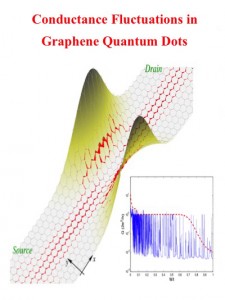
Conductance Fluctuations in Graphene Quantum Dots
Previous ASU students involved in this line of research were Liang Huang, Ph.D. (now a Chair Professor of Physics at Lanzhou University, China), Xuan Ni, Ph.D. (with Qualcomm) and Dr. Rui Yang (with LinkQuest Inc.). Lai has also been collaborating with Professor Celso Grebogi from University of Aberdeen in Scotland and Louis Pecora, Ph.D. from the Naval Research Laboratory. Current ASU doctoral students working in this area are Hong-Ya Xu, Guanglei Wang and Lei Ying.
The proposed research aims to advance the field significantly through five research areas:
- Mathematical theory of relativistic quantum chaos
- Relativistic quantum phenomena at large scales
- Relativistic quantum chaos with many-body interactions
- Interplay between chaos and spin
- Nonlinear dynamics and topological light propagation
Lai anticipates that, with the NSSEFF grant, the ASU investigative team will consist of himself, a post-doctoral fellow and four Ph.D. candidates.
The current NSSEFF cohort comprises 32 fellows — including a Nobel laureate, members of National Academies, five winners of the Presidential Early Career Award for Scientists and Engineers, which Lai received in 1997, and recipients of many other prestigious awards and honors.
“The program awards grants to top-tier researchers from U.S. universities to conduct long-term, unclassified, basic research of strategic importance to the Defense Department,” said Dr. Melissa L. Flagg, deputy assistant secretary of defense for research. “These grants engage outstanding scientists and engineers in the most challenging technical issues facing the department.”
Fellows conduct basic research in core science and engineering disciplines that underpin future DOD technology development, Flagg explained. The new Fellows will also conduct basic research in the areas of neuroscience, nanoscience, novel engineered materials, applied mathematics and statistics and manufacturing science.
In 1997, Lai received the Air Force Presidential Early Career Award for Scientists and Engineers (PECASE) from the White House. In the same year, he also received the Faculty Career Award from the National Science Foundation. In 1999, was elected as a Fellow of the American Physical Society with the citation: “For his many contributions to the fundamentals of nonlinear dynamics and chaos.”
Media contact
Terry Grant, [email protected]
480-727-4089
Ira A. Fulton Schools of Engineering


